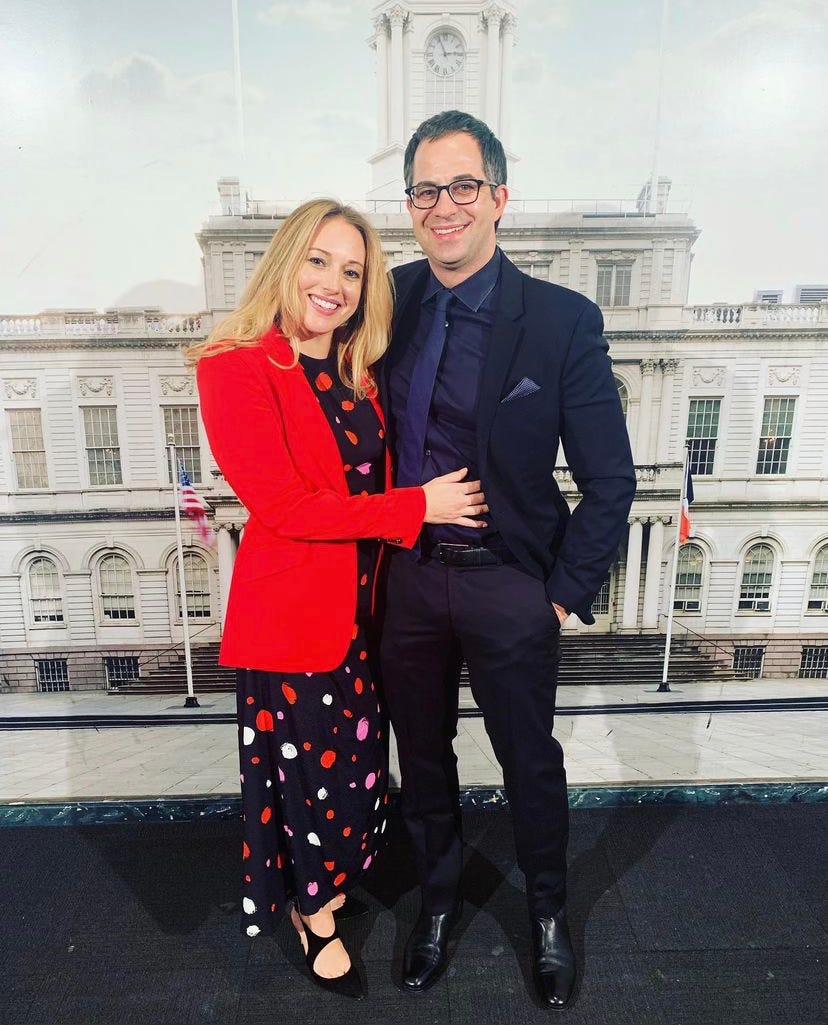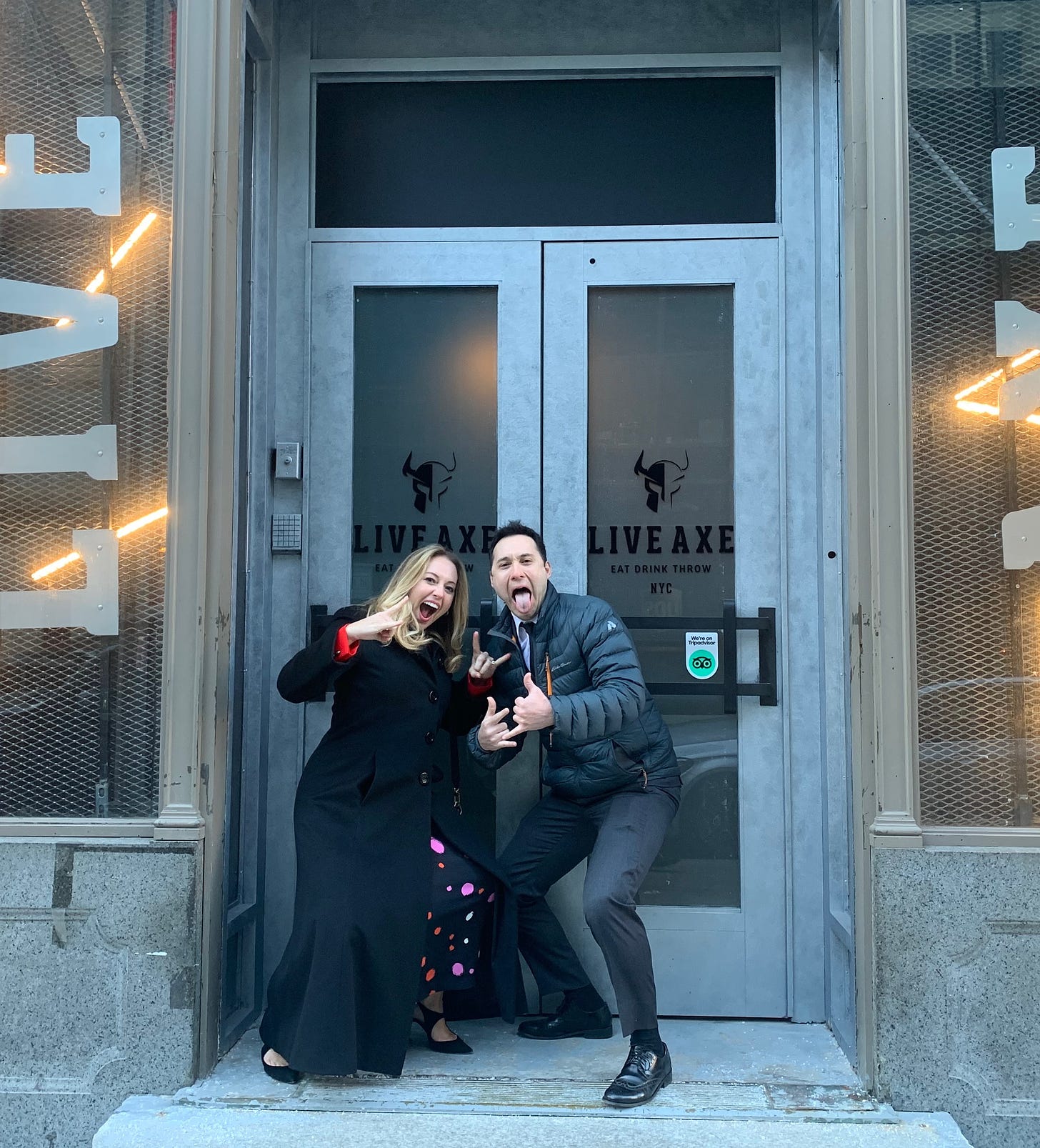The case for adversarial collaboration
The benefits of adversarial collaborations, the psychology of Putin's Russian Trolls, and why it's hard to generalize findings from moral and political psychology.
Before we get into our regular newsletter, we’d like to take a moment to share this LinkTree with our readers, which has links to resources and information regarding how you can support Ukrainians survive this vicious attack from Putin and his army. We have a lab member with family in Ukraine and hope you’ll join us in supporting this cause. We encourage you to check out the links and share it with anyone who would like to get involved.
Creating a culture of healthy criticism
If you have spent any time on #AcademicTwitter, you know how online criticism of research often unfolds. Every week seems to bring a new hot take or dunking contest. Quote tweets and sub-tweeting threads slamming other peoples’ perspective have become a regular occurrence. As academic conversations have moved to online spaces like the Twittersphere, it feels more and more as though that they reflect the norms of the social media platforms they inhabit rather than the ethos and norms of healthy science.
Criticism is, of course, vital to the research process. But we need to avoid the toxic personal criticism to give people the opportunity to learn from their mistakes. Doing so allows scholars to explore these intellectual clashes in a productive and honest way, and opens the door for adversarial collaborations—which we (along with many other scholars) see as a potentially useful tool for advancing the progress of the field.
We have been thinking of ways to encourage this kind of open exchange of ideas in our own lab. A few months ago, we tried something new and sent out an open invitation for critics of our research to visit a lab meeting and tell us why they think we are wrong about a topic or how we can improve our work.
We recently had our first visitor, Gordon Pennycook, who shared his work on political reasoning and why he approaches this topic differently from many of us in the lab. It went very well—so well that we hope to host more of these visits in the future! We also hope that one of these visits may even turn into an adversarial collaboration down the line. Please share with anyone else who might want to take us up on the offer.

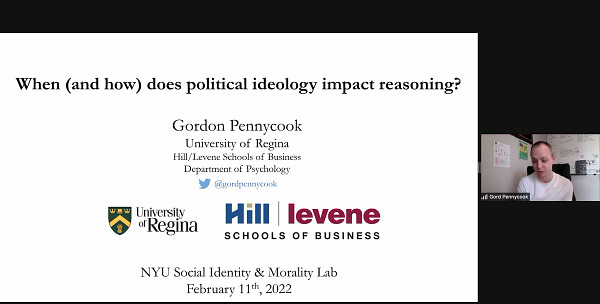
We have also been thinking and writing more about adversarial collaborations. For instance, we recently published a paper that was the product of an adversarial collaboration that investigated whether the political slant of psychology is related to replicability.
We also published a new paper describing the challenges of making adversarial collaborations a success (led by postdoc Madalina Vlasceanu, former PhD student Diego Reinero, and Jay). We discuss both the benefits and boundary conditions of adversarial collaborations, and wrote the paper to serve as a roadmap for those who are interested in engaging in such research partnerships.
Importantly, while we are ultimately advocates of this approach, the paper offers guidance on avoiding some of its drawbacks, as adversarial collaborations are not a one-size-fits-all solution to resolving research disputes. Stay tuned for an announcement of when it’s published in the Journal of Applied Research in Memory and Cognition!
And if you’re curious, here’s a sneak peak:
When scientific rivals or adversaries engage with each other’s ideas directly, rather than through rebuttals, science advances more quickly. In fact, some of the more popular and productive talks at scientific conferences are ones in which scientific rivals debate each other by laying out their strongest arguments, allowing the audience to draw conclusions about which data or theory seem most convincing. Such debates create a space in which scientists directly address each other, clarify points of confusion or misinterpretations, attempt to resolve conflicting evidence, and persuade the audience. Adversarial collaborations take this practice a step further, forcing disagreeing scientists to work together in carrying out a study (or set of studies) aimed at adjudicating the truth.
Want to come critique our research? Fill out this Google Form (also available on our website, seen below).
New papers
Prior to the Russian invasion of Ukraine, Russian trolls have been interfering in foreign countries. We have a brand new paper coming out in PNAS Nexus examining the polarizing rhetoric used by Russian trolls and everyday citizens (led by visiting postdoc Almog Simchon, former lab PhD student Billy Brady and Jay). Our research finds that Russian Trolls use polarized language in their attempts to pollute our online environments but also that they effectively polarize our social networks.


We have another new article out in Behavioral and Brain Sciences, from PhD student Elizabeth Harris, postdoc Philip Pärnamets, PhD student Claire Robertson, and Jay! We argue that in the realms of political and moral psychology, features of the research—such as cultural context and the time period research is conducted in—are likely to matter a great deal, which can make it difficult to generalize findings from these domains.
As a potential way forward, we suggest that social psychologists who study these issues organize in not only more cross-disciplinary and cross-cultural collaborations, but also conduct research cross-temporally, or over longer periods of time. By conducting research with more diverse samples of participants and stimuli, across social and political contexts, we may be able to come a bit closer to making generalized claims about findings in moral and political psychology. You can read full paper on our website here.

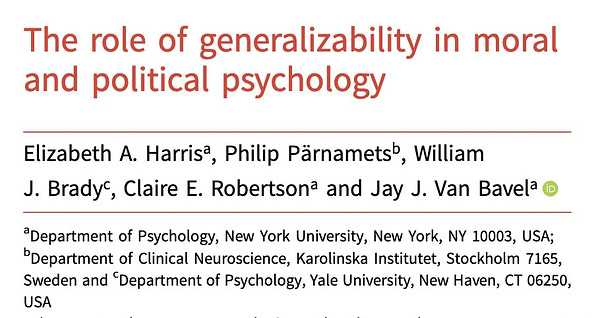
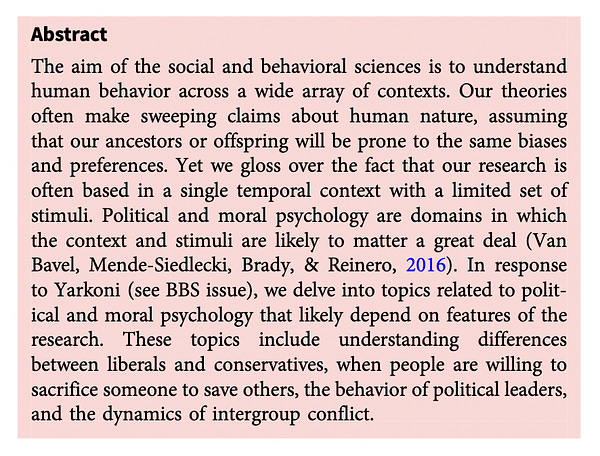
In the media
Want to understand the psychology of the anti-vax community? In a recent article for Canada’s National Post, Jay discussed how the vaccine’s association with harm makes it deeply connected to morality, which can lead anti-vaxxers to see actions around getting vaccinated as a moral issues, i.e. “good” vs. “bad,” or “good” vs. “evil. He also explained that their shrinking numbers may be actually increasing their social identity and shared purpose, further fueling an “us” vs. “them” mentality:

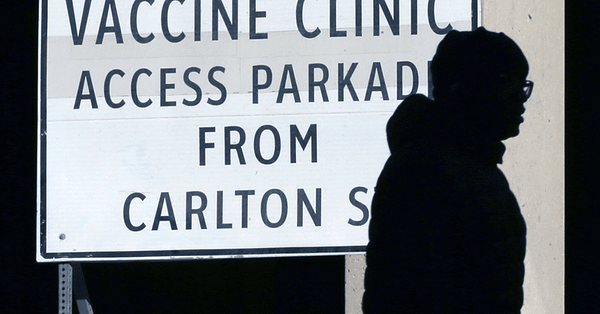
Incoming Postdoc Steve Rathje was a recent guest on the Let’s Learn Everything! podcast this month! Check out the episode to hear about science communication and Steve’s work, including out-group animosity on social media and the benefits of attending live theatre (among other topics, like if insects have consciousness):


In a recent appearance on the Culture Lab podcast, Jay discussed why some people say they would rather die than lose their social standing, the good and bad of social identity, and more:

Jay was recently featured on NPR to discuss the uncertainty around the end of the pandemic. He talked about how the threat of new variants feels a bit like a horror movie where the monster keeps coming back from the dead…


The Power of Us
We are excited to share that Jay’s book, The Power of Us, was awarded the Center for the Science of Moral Understanding’s 2022 Social Impact Award! The award recognizes books that provide both inspiration and pathways to moral understanding.
Dom will be speaking about the book at the Center for the Science of Moral Understanding Conference this summer, which you can find more details for here.

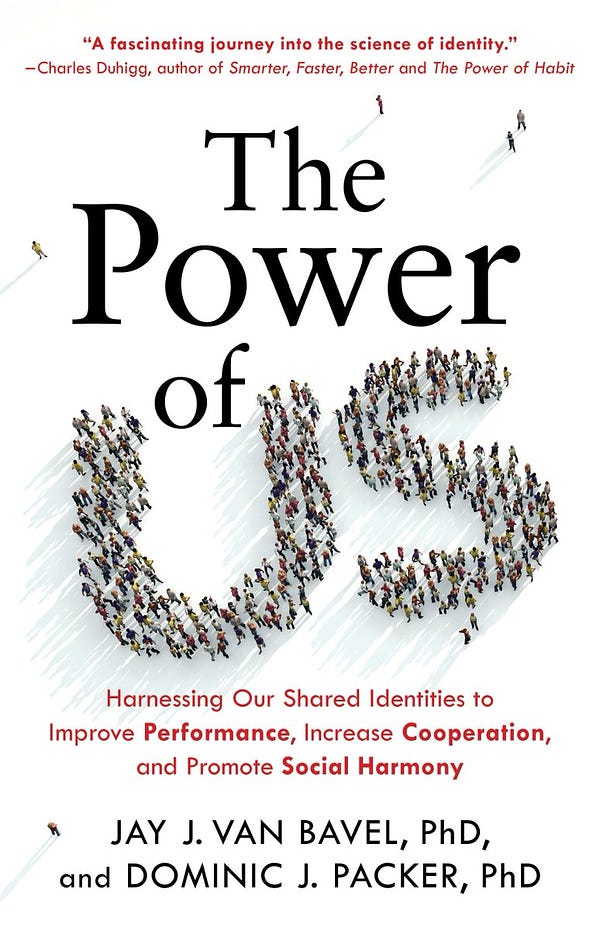
Lab member shout-outs
In some very exciting news, lab Postdoc Madalina Vlasceanu will be joining NYU as a faculty member this fall! She will be directing the new Collective Cognition Lab, which will be focused on collective belief and behavioral change interventions, particularly relating to climate change. You can learn more about her new lab here.

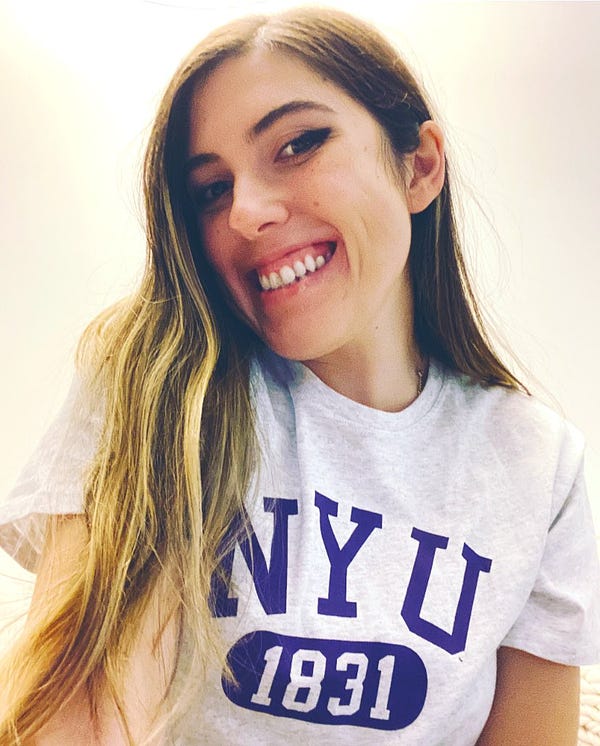
Two lab alumni won awards from the Association for Psychological Science this year! Congrats to former PhD student Ana Gantman and former visiting postdoc Oriel FeldmanHall:


And in non-academic but *highly* exciting news, Jay got married this month to Dr. Tessa West! Former PhD student Diego Reinero was their witness, and accompanied the newlyweds to an axe-throwing celebration post-tying the knot.
Earlier this month, the lab also took over Jay’s apartment for an afternoon to watch SPSP talks and munch on his kid’s snacks. As the pandemic fades *fingers crossed* we will look towards having some more social activities.

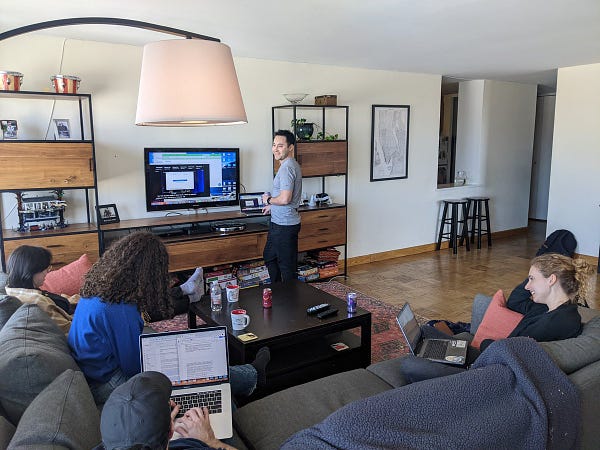
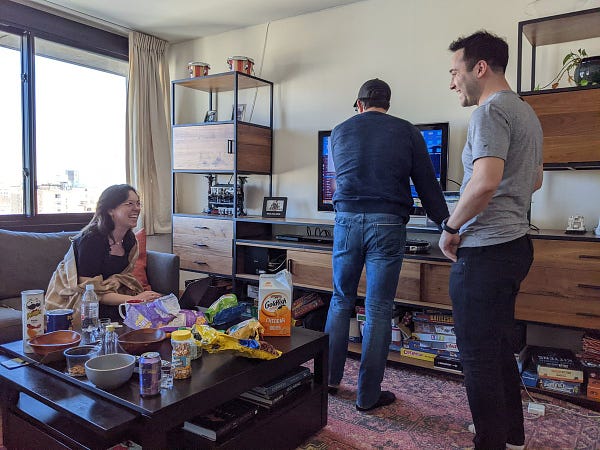
Job opportunities for recent grads and postdocs
One of our collaborators, the Stanford Social Neuroscience Lab, recently sent us an email saying they are hiring 1-2 postdoctoral scholars and a lab manager to start this summer. The lab is directed by Jamil Zaki, who does fantastic research on empathy, prosocial behavior, emotion regulation, and other related phenomena, using a range of methods including brain imaging, social network analysis, and behavioral experiments. If you’re interested in learning more about these positions and submitting an application for either of the available roles, send us a note at nyu.vanbavel.lab@gmail.com and we’ll forward you the application information.
In case you missed last month’s newsletter…


As always, if you have any photos, news, or research you’d like to have included in this newsletter, please reach out to Katie (nyu.vanbavel.lab@gmail.com). We encourage former lab members and collaborators to share exciting career updates or job opportunities—we’d love to hear what you’re up to and help sustain a flourishing lab community. Please also drop comments below about anything you like about the newsletter or would like us to add.
That’s all, folks—thanks for reading and we’ll see you next month!





